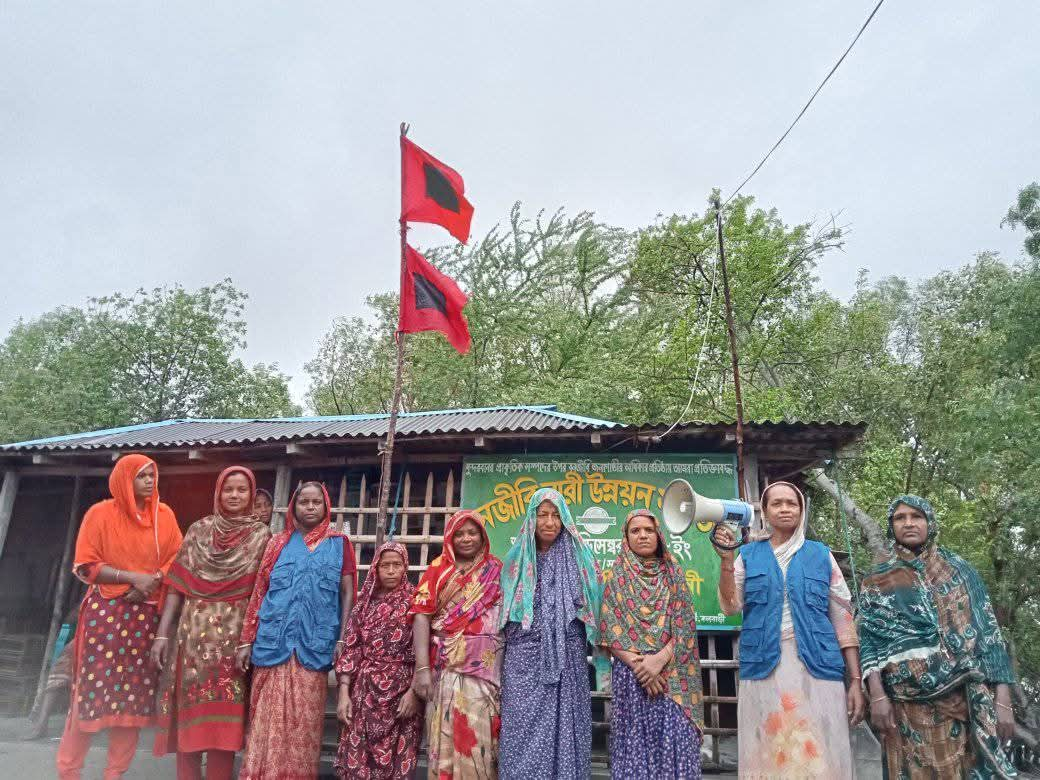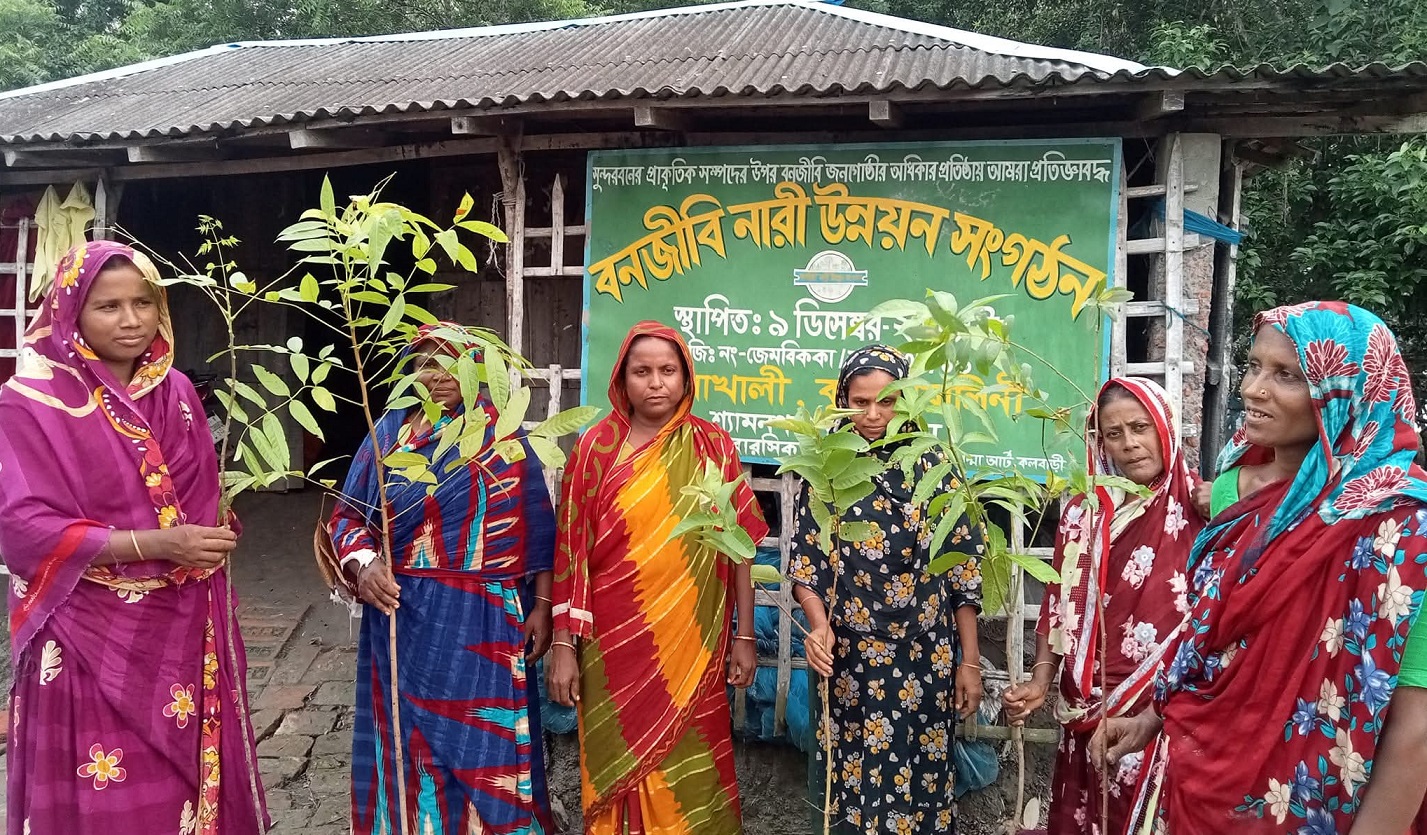By Monika Paik from Shyamnagar, Satkhira,
Shefali Bibi, a forest-based woman from Datinakhali village near the Sundarbans, has long been organizing women to utilize forest resources for income generation. Under her leadership, the Datinakhali Forest-Based Women’s Development Organization was established.
Once, Shefali Bibi, like many other ordinary women in her village, observed strict social norms. Speaking to outsiders was considered completely forbidden. Gradually, by participating in various government and non-government meetings, discussions, and training sessions, she became skilled and confident. Through this process, she also learned to share her knowledge about life and livelihoods with others. In this way, connections and exchanges with other people and organizations were established.

Engagement with various organizations helped forest resource dependent women express their opinions, identify local problems, raise awareness about their rights, and develop the capacity for self-employment. Beyond that, these efforts contributed to social development, educational growth, women’s liberation, and empowerment. Following this trajectory, one forest resource dependent woman, who became the chairperson of the organization, ran in the 2011 local government elections and was elected as a Union Parishad member. Through the organization, forest-dwelling women were able to assert their identity in local governance.
The organization also introduced forest products such as purified and bottled honey and pickles, along with various handicrafts, to the local market. This helped establish the women’s recognition in the area. The organization works for the development of rural women, supporting both their economic and social empowerment.
Although the organization carried out many activities, it initially had no office, which caused difficulties for its members. Without an office, forest resource dependent women were deprived of various services and benefits provided by government and non-government institutions. Recognizing this, the chairperson and members decided to establish an office. With support from BARCIK, they set up the office, which transformed the situation. Government and non-government services and resources became accessible to forest-dwelling women through the organization.
Over time, the organization helped improve members’ socioeconomic conditions by accessing support from various institutions including Relief International, Sushilon, Caritas, CCDB, CAREL, Tiger Team, and the Union Parishad. Thousands of forest resource dependent women received assistance such as sewing machines, grocery shops, cloth, pedal vans, sheep, goats, crab farming, water tanks, swan ducks, stoves, and boats. This was made possible through the active intervention of the forest women’s organization. Shefali Bibi also facilitated access to government services such as child cards, senior citizen allowances, and participation in the 40-day work program.

Marginalized forest resource dependent women, organized through the organization, are now able to secure their rights, participate in income-generating activities, and contribute to social development. Today, women’s opinions are valued alongside men’s in family decision-making. Recognizing the importance of formal recognition, the organization sought BARCIK’s assistance to complete registration. With technical support from BARCIK, the organization was officially registered in March 2016 under the Department of Women’s Affairs.
After registration, Shefali Bibi worked tirelessly to involve women in income-generating activities. They began producing and marketing honey, pickles, jams, and wax products such as candles and decorative items, enabling financial independence.
This has eased household hardships. Economically successful women have not merely changed their own fortunes; they have set examples in coastal areas by promoting Sundarbans conservation and improving the quality of life for forest resource dependent communities. Hundreds of women have been trained and become self-reliant. The organization’s initiatives also support widows and impoverished women, using profits from product sales to improve their livelihoods.
In recognition of her outstanding contributions to economic empowerment, Shefali Bibi received the “Best Achiever” award in 2017. In 2023, under a project funded by Christian Aid and supported by Nawabeki Gonmukhi Foundation, she led a women-led CSO team to provide 13 farmers. In 2025, she also assisted 12 vulnerable families.
She said, “Organizing women not only increases household income but also strengthens environmental awareness and social empowerment.”
